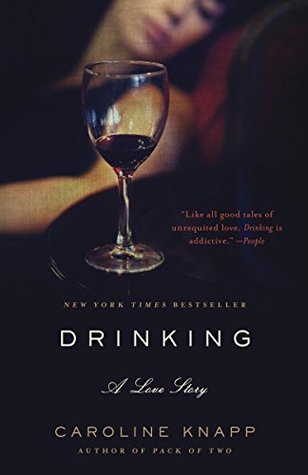More on this book
Community
Kindle Notes & Highlights
I think I knew on some level that the drinking and the depression were connected, but I also believed that the undercurrents of despair were somehow central to my work, that drink was an occupational hazard, part of the writer’s territory. Tennessee Williams said that he never wrote without first drinking wine. William Styron used liquor, and often, not to help him write but to help him think, a means, he writes, of letting his mind “conceive visions that the unaltered, sober brain has no access to.” I identified with that. I identified with legions of drinking writers: Carson McCullers, Dylan
...more
Jamay Lau liked this
I heard Pete Hamill interviewed on National Public Radio. His memoir, A Drinking Life, had just come out and the interviewer asked if his drinking had ever affected his work. Hamill thought for a minute, then said that after a while he got the feeling that he was squeezing his talent through a tube of toothpaste, that his focus and concentration and feeling of literacy all seemed more strained and constricted.
But then the wine came, one glass and then a second glass. And somewhere during that second drink, the switch was flipped. The wine gave me a melting feeling, a warm light sensation in my head, and I felt like safety itself had arrived in that glass, poured out from the bottle and allowed to spill out between us. I don’t remember what we talked about that night, but I do know that the discomfort was diminished, replaced by something that felt like a kind of love.
The search for a fix, for a ready solution to what ails, has become a uniquely American undertaking, an ingrained part of consumer culture, as prevalent as the nearest diet workshop or plastic surgeon. In some ways alcoholism is the perfect late twentieth-century expression of that particular brand of searching, an extreme expression of the way so many of us are taught to confront deep yearnings. Fill it up, fill it up, fill it up. Fill up the emptiness; fill up what feels like a pit of loneliness and terror and rage; please, just take it away, now.
For years my therapist said to me, “Sit with the feelings. What happens when you just sit still, by yourself? What happens when you just sit with the feelings?” I suppose he was trying to get at those very questions: What kind of person was I, really? What was I afraid of, angry about? Who was I when I didn’t have other people to cue into? I couldn’t answer, of course, because I couldn’t do it.
She seemed so serene, her feet tucked underneath her on the sofa, and I couldn’t fathom why she didn’t get bored or restless or uncomfortable or lonely. I’d sit and watch and hold my glass of wine in front of me like an amulet. I couldn’t do it, be alone without the wine; I didn’t know how.
“Insight,” he said, “is almost always a rearrangement of fact.”
Better. The word seems thin, even a little deceptive. Sobriety is less about “getting better” in a clear, linear sense than it is about subjecting yourself to change, to the inevitable ups and downs, fears and feelings, victories and failures, that accompany growth. You do get better—or at least you can— but that happens almost by default, by the simple fact of being present in your own life, of being aware and able, finally, to act on the connections you make.


